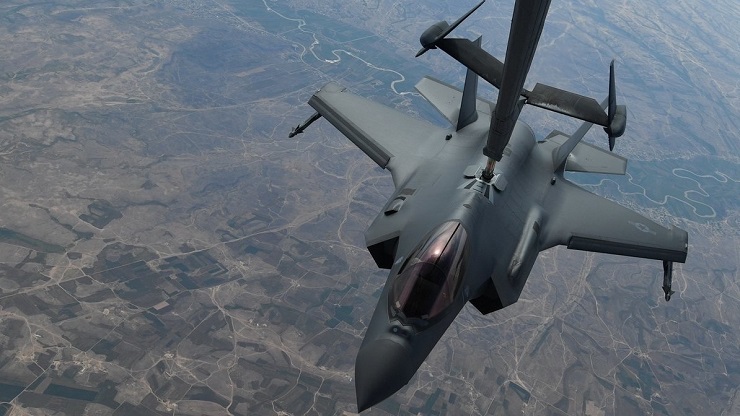The UAE and Israel have achieved in less than six weeks what Israel and Egypt have not achieved in over 41 years. While this does look remarkable, there is still a devil in the details. The Abraham Accords, happening against a changing geo-strategic landscape of the Middle East and the rise of Iran and Turkey as two powerful contenders, are already shaping the Middle East in unprecedented ways. The fact that Israel has agreed to the sale of F-35 jet fighters to the UAE means Israel has got considerable concessions in return not only from the US, which is anyway bound to maintain Israel’s qualitative military edge in the Middle East, but the UAE as well, entrenching Israel in the Gulf-Arab countries in ways that would not just put the Palestinian issue on the backburner, but also deeply intensify fault lines of geo-political competition.
As it stands, a major concession that Israel has achieved from the UAE in return for F-35 is an all-always open intelligence gateway to the UAE. Israeli intelligence, through the newly signed agreement on visa-free entry for Israeli nationals, can now sneak in and out of the UAE without being noticed. In normal course of bi-lateral relations, visa free travel agreements come when two countries have a fully-flourished economic and business ties. The UAE-Israel have obviously decided to front-load their ties with this particularly crucial agreement. There is as such no gainsaying that this apparently harmless visa-free entry agreement is a prelude to a strong Mossad-base in the UAE, allowing Israel to keep an even closer eye on Iranian activity in the region.
This agreement is apart from increasing UAE-Israel cooperation elsewhere as well, particularly in and around Yemen. A plan to develop a spy base on the Yemeni island of Socotra is in the pipeline. This spy station on Yemen is again directed at monitoring Iranian activity, including from the Bab el-Mandeb Strait, a sea route chokepoint between the Horn of Africa and the south of Yemen, along with the Gulf of Aden and the Middle East.
Socotra overlooks the Bab el-Mandeb Strait that connects the Red Sea to the Gulf of Aden and the Arabian Sea. Most exports of oil and natural gas from the Persian Gulf that transit the Suez Canal or the Suez Canal and Suez-Mediterranean (SUMED) Pipeline pass through the straight. Every day over 3 million barrels of oil travel from the Gulf to the Mediterranean Sea.
As it stands, the UAE-baked Southern Transitional Council (STC) took control of Socotra’s capital city of Hadiboh in June, after fighting off Yemeni President Abed Rabbo Mansour Hadi’s forces, whose government accused the UAE of supporting the separatist STC to serve its own ambitions in the country.
In this context, the visa-free agreement adds more to Israel’s growing capacity vis-à-vis Iran at a time when Iran is all set to take a big leap forward both in military and economic terms. The US has failed to ‘snap-back’ UN sanctions on Iran, which practically means Iran will be adding to its military capacity massively. An additional factor boosting Iran’s national-power potential is the US-China economic agreement and the promise of investment worth hundreds of billions of US dollars.
Of course, greater UAE-Israeli cooperation will be of essence for Emirati interests as well. The UAE being the first Gulf-Arab country to possess F-35s will massively increase its power potential vis-à-vis other Gulf countries and allow it to position itself as a ‘regional leader’, leaving the Saudis behind and making them follow Emirati leads. The UAE, by becoming the first Gulf country to normalise relations with Israel, has already set the trend. Following developments are only going to add to its political, military, and economic strength in the region and beyond.
Consider this: Israeli pipeline company EAPC announced a week ago that it had signed a preliminary deal to help transport oil from the UAE to Europe via a pipeline that connects the Red Sea city of Eilat and the Mediterranean port of Ashkelon. State-owned EAPC said it signed a binding memorandum of understanding with MED-RED Land Bridge, a company with Israeli and Emirati owners, based in Abu Dhabi.
How the UAE-Israel deals are going to change the Middle East is evident from the fact that the lucrativeness, particularly the acquisition of advance weaponry, being shown may pull a number of other Gulf-Arab countries into doing similar peace agreements with Israel, and into further high-tech deals with Washington. For the US, this would be worth it; for, this would significantly reduce the inflow of Chinese and Russian weapons in the region, and deeply entrench the US military-industrial complex in the Middle East.
There is already race going-on for acquiring F-35s. As it stands, Qatar, too, has formally requested the US for these jets. Qatar, which houses a US military base, has good relations with not only the US but Turkey and Iran as well. However, its relations with the UAE and Saudi Arabia remain confrontationist and there are no signs of Qatar signing a peace-deal with Israel. Having said that, it is quite possible that Qatar’s Emir, who has good relations with Erdogan, might have made this request to complicate the US-UAE F-35 sale. A formal US refusal to sell F-35 to Qatar might open up the way for her to meet her growing needs from other sources. Erdogan might advise the Emir to follow his way of acquiring Russian technology.
While this is still unfolding, there remains little doubt that the sale of F-35 jets in not an end of the process; it is setting the stage for even bigger and key geo-strategic changes the region.
Salman Rafi Sheikh, research-analyst of International Relations and Pakistan’s foreign and domestic affairs, exclusively for the online magazine “New Eastern Outlook”.

